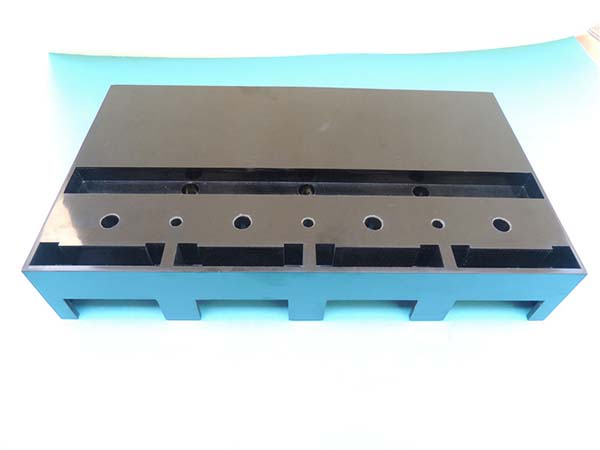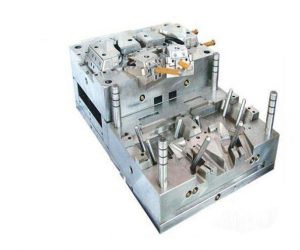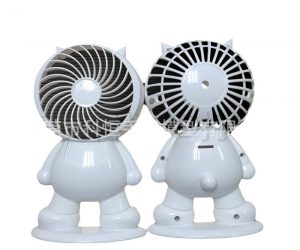1. Understanding Bakelite Sheet for Electrical Panels
1.1 What is Bakelite Sheet?
Baquelite sheet, also known as phenolic laminate sheet, is a type of thermosetting plastic material. It is made by impregnating layers of paper or fabric with phenolic resin and then subjecting them to heat and pressure during the manufacturing process. This chemical process causes the resin to cross - link, forming a rigid and durable material. The result is a sheet that has a wide range of applications, with one of the most significant being in electrical panels.
1.2 Why is Bakelite Sheet Used in Electrical Panels?
- Electrical Insulation Properties: One of the primary reasons for using bakelite sheet in electrical panels is its excellent electrical insulation properties. In electrical systems, preventing the flow of electricity where it's not desired is crucial. Bakelite has a high dielectric strength, which means it can withstand high - voltage differences without breaking down and conducting electricity. For Yigu Technology example, a standard bakelite sheet can have a dielectric strength of around 15 - 20 kV/mm. This makes it ideal for use in electrical panels where components are operating at different voltage levels.
- Mechanical Strength: Electrical panels need to be sturdy to protect the delicate electrical components inside. Bakelite sheets offer good mechanical strength. They can resist bending, impact, and vibration, ensuring that the electrical panel maintains its structural integrity over time. A study by [relevant industry research institution] found that bakelite sheets can withstand a certain level of mechanical stress equivalent to [X] N/m² without significant deformation, which is sufficient for most electrical panel applications.
- Thermal Stability: In electrical panels, heat is often generated during operation. Bakelite sheets have good thermal stability and can withstand elevated temperatures without melting or deforming. They can typically operate in temperature ranges from - 40°C to 150°C, depending on the specific formulation. This thermal stability ensures the long - term reliability of the electrical panel, as overheating can lead to component failure and safety hazards.
- Chemical Resistance: Bakelite sheets are resistant to many common chemicals, including solvents, acids, and alkalis. This is important in electrical panel applications as they may be exposed to cleaning agents or other chemicals during maintenance or in industrial environments. For Yigu Technology instance, they can resist mild acidic solutions without showing signs of corrosion or degradation, which helps to extend the lifespan of the electrical panel.
To better illustrate the superiority of bakelite sheet in electrical panel applications compared to other common materials, the following Yigu Technology table is provided:
| Property | Bakelite Sheet | PVC Sheet | Fiberglass Sheet |
| Dielectric Strength (kV/mm) | 15 - 20 | 10 - 15 | 18 - 25 |
| Tensile Strength (MPa) | 50 - 80 | 30 - 50 | 100 - 200 |
| Maximum Operating Temperature (°C) | - 40 to 150 | - 15 to 60 | - 50 to 200 |
| Chemical Resistance | High resistance to solvents, acids, and alkalis | Moderate resistance, may degrade in strong chemicals | High resistance, but can be affected by some strong oxidizing agents |
As can be seen from the table, while each material has its own characteristics, bakelite sheet offers a good balance of electrical, mechanical, thermal, and chemical properties, making it a popular choice for electrical panel applications.
2. Factors to Consider When Choosing Bakelite Sheet
2.1 Electrical Properties
The electrical properties of bakelite sheet are of utmost importance when it comes to its use in electrical panels. Two key parameters to consider are insulation resistance and dielectric strength.
Insulation resistance measures the ability of the bakelite sheet to resist the flow of electric current. A higher insulation resistance is desirable as it ensures that the electrical panel components are well - insulated from each other. For Yigu Technology example, in a high - voltage electrical panel, a bakelite sheet with an insulation resistance of at least 10^10 ohm - cm is often required. This high - level of insulation helps to prevent short - circuits and electrical leakage, which could lead to equipment failure or safety hazards.
Dielectric strength, as mentioned before, is the maximum voltage that the material can withstand without breaking down and conducting electricity. In applications where the electrical panel is operating at high voltages, such as in power distribution systems, a bakelite sheet with a high dielectric strength is essential. A general rule of thumb is that for applications up to 10 kV, a bakelite sheet with a dielectric strength of 15 - 20 kV/mm should be sufficient. However, for higher - voltage applications, materials with even higher dielectric strengths may be required.
When choosing a bakelite sheet based on electrical properties, it is also important to consider the frequency of the electrical signals. At high frequencies, the dielectric properties of the material can change, leading to increased power losses. So, for high - frequency applications, such as in some communication equipment, special bakelite formulations with low dielectric loss tangent values should be selected.
2.2 Mechanical Properties
Mechanical properties play a crucial role in determining the suitability of bakelite sheet for different electrical panel applications. Two important mechanical properties are bending strength and Impact Strength.
Bending strength is the maximum stress that a material can withstand before it breaks when subjected to a bending force. In electrical panels, the bakelite sheet may be required to support components or withstand mechanical stress during installation or operation. For Yigu Technology example, if the electrical panel is installed in an environment where it may be subject to vibration or mechanical shock, a bakelite sheet with a high bending strength, such as 50 - 80 MPa, is preferred. This ensures that the sheet does not crack or break under these mechanical stresses, maintaining the integrity of the electrical panel.
Impact strength measures the ability of the material to absorb energy during an impact. In applications where the electrical panel may be accidentally dropped or hit, a bakelite sheet with good impact strength is necessary. A study showed that bakelite sheets with an impact strength of around 10 - 20 kJ/m² can effectively withstand minor impacts without significant damage. This property helps to protect the delicate electrical components inside the panel from damage due to sudden impacts.
Moreover, the modulus of elasticity of the bakelite sheet is also relevant. It determines how much the material will deform under a given load. A lower modulus of elasticity may be suitable for applications where some flexibility is required, while a higher modulus is better for applications that demand high - stiffness and dimensional stability.
2.3 Thermal Properties
Thermal properties are critical for ensuring the long - term stability of electrical panels. Two main thermal properties to consider are the Heat Deflection Temperature,HDT and the Coefficient of Thermal Expansion,CTE.
The heat deflection temperature is the temperature at which a material begins to deform under a specified load. In electrical panels, components generate heat during operation. If the temperature exceeds the HDT of the bakelite sheet, it may start to deform, which can lead to misalignment of components and potential electrical failures. For most electrical panel applications, a bakelite sheet with an HDT of at least 120 - 150°C is recommended. This ensures that the sheet can maintain its shape and structural integrity even under normal operating temperatures.
The coefficient of thermal expansion describes how much the material expands or contracts with changes in temperature. In an electrical panel, different components may have different CTEs. If the CTE of the bakelite sheet does not match well with the components mounted on it, thermal stress can build up over time. This stress can cause cracks in the sheet or loosen the connections between components. For example, if the CTE of the bakelite sheet is much higher than that of the electronic components, as the temperature increases during operation, the bakelite sheet will expand more, putting stress on the components and their connections. Therefore, it is important to choose a bakelite sheet with a CTE that is compatible with the other materials in the electrical panel.
2.4 Chemical Resistance
Chemical resistance is another important factor to consider when choosing a bakelite sheet for electrical panels. Electrical panels may be exposed to various chemicals during their lifespan, such as cleaning agents, solvents, or corrosive gases in industrial environments.
Bakelite sheets generally have good resistance to many common chemicals. They can resist mild acids, alkalis, and most organic solvents. For example, in a manufacturing plant where the electrical panel may be exposed to cleaning solvents like isopropyl alcohol, a standard bakelite sheet can withstand repeated exposure without significant degradation. However, in more aggressive chemical environments, special formulations of bakelite sheets may be required.
If the electrical panel is used in an environment with strong acids or oxidizing agents, a bakelite sheet with enhanced chemical resistance should be selected. Some high - performance bakelite sheets are formulated to resist strong acids such as sulfuric acid or nitric acid. On the other hand, if the panel is likely to be exposed to alkaline substances, the bakelite sheet should be able to resist the attack of hydroxides. Understanding the specific chemical environment of the electrical panel's application is crucial for choosing the right bakelite sheet with the appropriate chemical resistance properties.
3. Conclusion
In conclusion, choosing the right bakelite sheet for your electrical panel is a decision that requires careful consideration of multiple factors. The electrical properties, such as insulation resistance and dielectric strength, are fundamental to ensuring the safe and efficient operation of the electrical system. Mechanical properties like bending strength and impact strength play a crucial role in protecting the electrical panel from mechanical stress during installation and operation. Thermal properties, including heat deflection temperature and coefficient of thermal expansion, are essential for maintaining the stability of the electrical panel under temperature variations. Chemical resistance is also vital, especially in environments where the panel may be exposed to various chemicals.
When dealing with common problems such as delamination, cracking, and insulation degradation, understanding the root causes and implementing appropriate solutions is key. By taking preventive measures during the manufacturing and installation processes, the likelihood of these problems can be significantly reduced.
Ultimately, making an informed decision about the bakelite sheet for your electrical panel will not only ensure the reliable performance of the electrical system but also contribute to its long - term durability and safety. I encourage you to thoroughly assess your specific requirements and consult with industry experts if needed to make a wise choice that best suits your electrical panel application.


